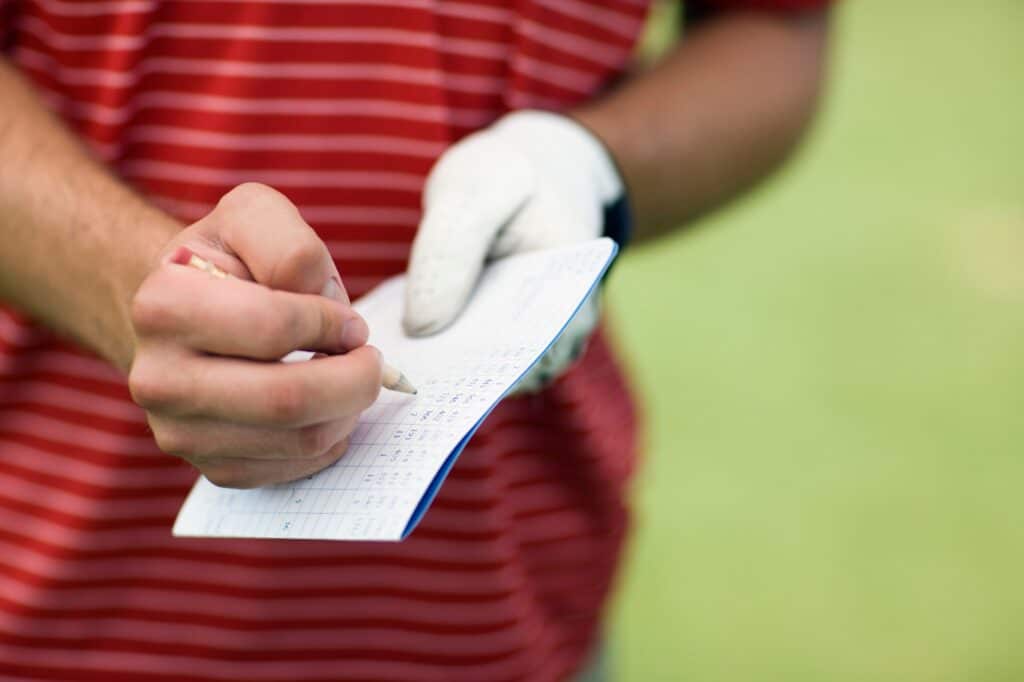We all know the World Handicap System takes the best eight scoring differentials out of our last 20 scores to work out our index.
But what if we don’t have those 20 scores in our entire records? That might sound ridiculous but for whatever reason – whether it’s because you’re a new or returning player, time, or simply an apathy towards competitions and general play scores, there are plenty of golfers that have yet to hit that magic number.
So what happens to those players who don’t have what’s known as a complete record? How is their handicap worked out until they get to those 20 scores, and does it make it easier or harder for them when they do decide to enter a competition?
Let’s take a look…

How is my World Handicap System Index worked out until I hit 20 scores?
Your World Handicap System index will continue to develop until it contains those 20 scores and the number of score differentials that are used to calculate it varies according to the number you’ve played.
Here’s a handy chart from the R&A and USGA that should hopefully help explain it a bit better.

So, let’s say you have four scores in your record. Only the best scoring differential will count towards your handicap (with an adjustment of -1).
And not until you make the 20 will your average be taken from the lowest eight. If you’ve got 12 to 14 in, for example, your index will be made up of just the average of the lowest four.
The effect of only having few scores in a record is some big handicap swings while you’re getting to that number.
You might think you’re a 24 handicapper, but if you shoot 12 over and it’s the only score that counts towards your calculation, it shouldn’t be a surprise you’ve been heavily cut.
Advertisement
You’re going to see wide variability in your WHS index until you’ve put in enough scores that clearly demonstrates your ability over a period of time.
This doesn’t just affect the higher end of the scale, either. A friend of mine, a low handicap golfer already, saw his handicap plunge because his record only contained a handful of scores and there was a very good number in there.
The lesson here is to put as many scores in as you can – whether that’s in competition or general play – to make sure your handicap can accurately reflect your game.
Once you hit the magical 20 number, you should find that it won’t vary as sharply and should start to reflect the ebb and flow of your form.
Now have your say
What do you think about these World Handicap System score rules? Let us know by leaving a comment on X.
Advertisement
